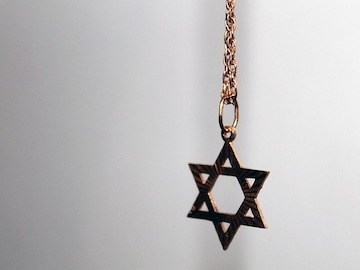
“And Pharaoh awoke, he and all his officials and all the rest of Egypt. There was a great cry, as there was no house where there was no death” (12:30). If the Torah says that Pharaoh awoke, it must mean that until then, he had been sleeping. Clearly, the Torah is not interested in telling us the bedtime habits of Pharaoh or, for that matter, anybody else. All information in the Torah is there to teach us some kind of a lesson, be it ethical, legal, or inspirational. Thus, biographical information about our founders is often lacking. What did Abraham do until he was seventy-five? What happened to Yosef after Yaakov died? What was Moshe doing in Midyan for so many years? These questions were not deemed significant by the Torah; whereas the fact that Pharaoh was asleep one night is!
And truly, it was very strange. “Moshe said to Pharaoh, in G-d’s name: ‘Around midnight, I will go out in the midst of Egypt. Every firstborn in Egypt will die, from the firstborn of Pharaoh sitting on the throne… there will be a great cry of anguish throughout all of Egypt’” (11:4-5). How could Pharaoh sleep knowing what was to befall his country? Could it be that after nine plagues, he still did not believe the warnings of Moshe? Did he think he could sleep his troubles away? Was he resigned to his fate?
It is hard to imagine that a human being possessed of an iota of sensitivity could sleep after a death sentence had just been proclaimed on his nation, let alone his own child. This, unfortunately, is the way of the wicked. Human suffering means little to them as long as they can cling to power. They are blinded to the consequences of their actions and to reality in general.
And maintaining his own power was the heart of Pharaoh’s regime. “He said to his people, ‘the Israelites are becoming too numerous for us. Come, let us outsmart them, lest they join our enemies during war time’” (1:10). Like any typical dictator, Pharaoh needed a scapegoat on which to deflect blame for the problems of his regime. The Israelites had been living in Egypt for hundreds of years—as Egyptians. Abraham, Isaac, and Jacob were not an acknowledged part of their heritage, nor was the rite of circumcision practiced. First and foremost, they were Egyptians. They had become so assimilated that when Moshe finally liberated them, 80% stayed behind. Yet, in the eyes of Pharaoh, they were immigrants, and waving the canard of dual loyalty would rally the people around them. Problems? Blame the Jews!
While one may start by attacking “foreigners”, inevitably the lust for power leads to the murder of one’s own people. “Pharaoh then gave orders to all his people: ‘Every boy who is born must be cast into the Nile’” (1:22). Our sages tell us that Pharaoh was concerned, lest a child be born who would one day overthrow his despotic regime of high taxes, slavery, and subjugation. Nothing and nobody would take the throne away from Pharaoh. Fighting to the death is not a modern concept; and blindness to reality caused by an oversized ego is nothing new. Did Pharaoh really think the people would obey this horrifying command? Such mundane questions were not of concern to Pharaoh. The people would be made to obey. While babies were being thrown into the Nile, Pharaoh was relaxing in bed. It was only when his own son lay dead in front of him that Pharaoh was really awoken from his sleep. Reality had finally begun to sink in.
“Pharaoh sent for Moses and Aaron during the night” (12:31). Not surprisingly, when his regime was literally crumbling before his eyes, Pharaoh wanted to negotiate. Unfortunately for him, that window of opportunity had long since passed. And even more unfortunately, Pharaoh learned nothing from his experiences. With the Jews gone, and the “Inspector” no longer looking for blood on the doorposts, Pharaoh felt secure enough to ignore the results of previous “battles”. His false sense of security led him to take his top troops and chariots on a suicide mission. Unlike his predecessor who—awoken from his sleep—summoned Joseph for the benefit of the country, this Pharaoh remained in his own dream world as he clung to power and world dominion. Today, there are many leaders who follow in his footsteps. Let us hope and pray that they wake up soon.



